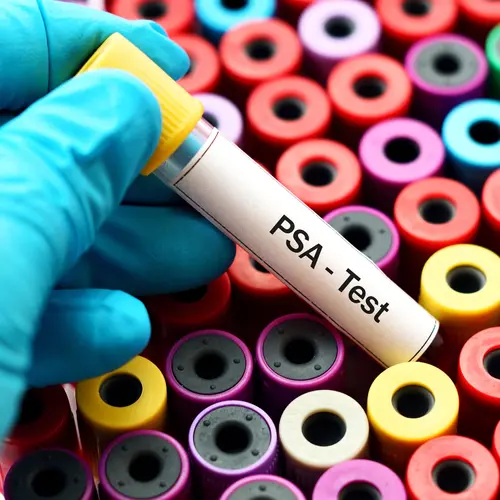Prostate Cancer News
- Are 'Man Vans' Coming to a Parking Lot Near You Soon?
April 22, 2024 — "Game Changer Vehicles" – mobile medical units in a roving RV – are helping to bring cancer screening to where it's needed.
- How Long Should Active Surveillance of Prostate Cancer Last?
April 19, 2024 — Ending active surveillance for men with low-risk prostate cancer may never be appropriate, according to a new study that saw progression and need for treatment in some patients followed-up for more than 15 years.
- Prostate Cancer Tsunami Coming, Experts Caution
April 5, 2024 — A scientific commission is predicting an 85% increase in deaths from the disease by 2040.
- Improving Fitness May Lower Risk of Prostate Cancer
January 31, 2024 — Improving cardiorespiratory fitness by 3% or more annually over three years reduced the chances of men developing prostate cancer by 35%.
- Active Surveillance for Prostate Cancer a Leap of Faith
November 7, 2023 — Should men with low-grade prostate cancer skip treatment and opt for active surveillance? That’s the question thousands of aging men must consider as the likelihood they will die from a low-grade prostate cancer diagnosis appears low.
- Weight Gain Before 30 Raises Risk of Fatal Prostate Cancer, Study Says
May 18, 2023 — Young men who gain the most weight in their late teens and early 20s appear to have a substantially increased risk of an aggressive form of prostate cancer and dying from the disease later in life.
- Watch and Wait a Safe Approach for Prostate Cancer
March 12, 2023 — Actively monitoring early-stage prostate cancer offers the same long-term survival rate as having surgery or radiation to treat the cancer, according to a new study.
- Digital Rectal Exams Could Miss Early Prostate Cancers: Study
March 9, 2023 — The study found that a PSA test at age 50 detected four times as many cases of early prostate cancer as a digital rectal exam at age 45 alone.
